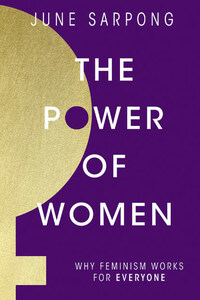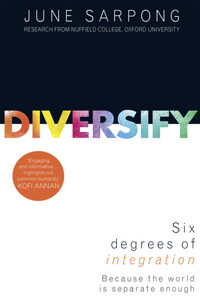Copyright
An imprint of HarperCollins Publishers Ltd
1 London Bridge Street
London SE1 9GF
First published in Great Britain by HQ in 2018
Copyright © June Sarpong 2018
June Sarpong asserts the moral right to be identified as the author of this work.
A catalogue record for this book is available from the British Library.
This novel is entirely a work of fiction. The names, characters and incidents portrayed in it are the work of the author’s imagination. Any resemblance to actual persons, living or dead, events or localities is entirely coincidental.
All rights reserved under International and Pan-American Copyright Conventions. By payment of the required fees, you have been granted the non-exclusive, non-transferable right to access and read the text of this e-book on-screen. No part of this text may be reproduced, transmitted, downloaded, decompiled, reverse engineered, or stored in or introduced into any information storage and retrieval system, in any form or by any means, whether electronic or mechanical, now known or hereinafter invented, without the express written permission of HarperCollins.
Ebook Edition © August 2018 ISBN: 9780008306779
INTRODUCTION / The Empowered Woman
Feminism (n). The advocacy of women’s rights on the ground of the equality of the sexes.
Oxford English Dictionary
The definition and the focus of feminism has changed through the ages as it has sought to resist and overcome the tenets of patriarchy. Women have always fought for their place within the household or family, usually employing femininity as an iron fist in velvet gloves, using covert or non-confrontational means to assert themselves. The political, social, and cultural upheavals of the twentieth century gave women a greater awareness of mass movements demanding political and social change. Women also became organized, but with a different end goal to many of the radical movements that sought the overthrow of the existing order.
The women’s movement – feminism – did not want to take power, but to share in it. However, the competitiveness which society often instils in men means some see the pursuit of power as a zero-sum game. This has resulted in any challenge to the status quo often prompting fear and suspicion – to the extent that feminism has frequently been met with aggression and violence, both from the state and individual males.
Thankfully, both men and women have evolved to the extent that the majority of us acknowledge that there needs to be gender equality, and politicians (still mainly men) have passed laws to underpin this belief. However, the zero-sum mentality still exists, where men view feminism as a movement of confrontation rather than an opportunity to achieve solutions to inequality. Some women also shy away from the label of feminism as it can often be typecast as a movement with unreasonable demands, that victimizes and takes power from men in favour of a female hierarchy.
True feminism is nothing of the sort. Rather, it is a movement that seeks to create the equal balance between the genders that we all need, defined in the Oxford English Dictionary as ‘The advocacy of women’s rights on the ground of the equality of the sexes.’ We seem to get fixated on the advocacy of women’s rights over the aim – which is equality.
Neither men nor women need to be afraid of the term feminism, because the imbalance and inequality that requires its existence costs us all dearly. Gender imbalance and inequality in female education will impact the male and female children who women might give birth to. Gender imbalance or inequality at work and in business impacts on how effectively a business or organisation is able to operate. These are issues that concern us all regardless of gender, which is why we must act on Chimamanda Ngozi Adichie’s clarion call. Indeed: We Should All Be Feminists.
As we celebrate the centenary of female suffrage in the UK, in the wake of the explosion of the #MeToo and #TimesUp movements and calls for greater pay transparency, it’s clear from recent indicators that there is a fierce appetite for a change in the way society treats women. With this glorious uprising of women everywhere we could be forgiven for feeling a sense of achievement, and indeed the social and cultural change in Western society has been significant and has ushered in a redefining of assumed gender relations at work and elsewhere. But the call for gender equality is nothing new and there is still much work to be done.









